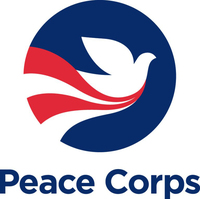During Peace Corps Week, Monmouth College students reminded the agency transforms worldviews
Monmouth, Ill. (02/23/2024) — You don't know what you don't know.
That was a message conveyed by Monmouth College political science professor Jessica Vivian when she discussed her "life-transforming" experience in the Peace Corps.
As the beginning of March nears, the federal program that fosters connections and contributes to meaningful change in the United States and around the world is in the spotlight. It was on March 1, 1961, that President John F. Kennedy established the agency.
Peace Corps Week 2024 will be observed Feb. 25-March 2, and Monmouth College is participating, as the school offers a Peace Corps prep program through its Center for Civic and Social Change.
Among several events scheduled on campus for the week are a noon lunch on Feb. 26 in Room 201 of the Center for Science and Business, where students can learn more about the Peace Corps. An online application workshop will be offered at noon Feb. 28.
"Our Peace Corps prep program allows students to see the opportunity and the potential for joining the Peace Corps," said Marnie Steach, director of the College's Wackerle Center for Career, Leadership and Fellowships. "They're able to think about what sector they might have an interest in, how their courses could come together, and how their time serving in their community could all come together and produce a quality application for the Peace Corps."
Vivian: 'A life-transforming experience'
"It was completely a life-transforming experience," said Vivian, who served in the Peace Corps immediately following her college graduation. Her husband, educational studies professor Craig Vivian, also served. "You have experiences that you never knew were there."
Many of those experiences relate to solving problems in the participant's assigned nation - in Vivian's case, the tiny Pacific republic of Kiribati - but some are more universal.
"I remember getting to the first day on site," she said. "I was like, 'I did not know that these colors existed.' The visuals were mind-blowing."
When it came to her view of the world, it was also a case of "mind ... blown."
"My worldview seemed complete before the Peace Corps," she said. "But it's like all of a sudden, you've left a room and entered the world. There's so many things that you couldn't even begin to conceptualize that you were missing - that you are, in fact, missing."
Nelson: Learn about yourself, the world
Vivian's department colleague, Mike Nelson, not only directs the Center for Civic and Social Change, but he also served in the Peace Corps right out of college, assigned as a water and sanitation and health education volunteer in the West African nation of Ghana.
"That meant I was working with small groups of people in the village where I lived, coming up together with some ideas and strategies for how to address their water and sanitation needs, as well as doing programs about health in the communities," said Nelson, who also helped teach English to children.
Among his contributions, Nelson helped a village committee set up its first bank account to hold the money it was raising and assisted with grant writing to bring in additional funds. As his two-year experience was ending, the first wells were being dug, so he saw tangible evidence of progress he helped to initiate.
"Doing something like the Peace Corps prep program that we have here at Monmouth prepares you for those kinds of experiences because you do get a well-rounded education, you get experience with service - ideally with leadership - and it's skills such as communicating and listening that a liberal arts major helps you acquire," said Nelson.
A generation later, 2018 Monmouth graduate Katie Walker also did her Peace Corps service in Africa and had, according to Steach, "an incredible experience."
Other key takeaways
Vivian said her experience opened doors that might otherwise have been closed.
"When you get out of Peace Corps, there's a whole range of options available to you," said Vivian. "It helped me get into graduate school. It helped me be at the top of my class in a lot of my classes in grad school. It helped me get into working at the United Nations. You'll have a leg up for any kind of federal job if you've been in the Peace Corps. You'll have a knowledge of the rest of the world and be able to articulate and bring in points of view that are non-U.S. points of view. That is helpful for everybody."
Steach said the Peace Corps Alumni Network is also a huge asset when it comes to the options Vivian mentioned, and she discussed other benefits of service.
"Being able to adapt to new things, to new places, to be able have the confidence to know, 'Hey, I went and did this really cool thing in a different country, and I figured it out and was able to make a difference,'" are all key takeaways from the experience, she said.
"Peace Corps really is a unique experience," said Nelson. "It's definitely about volunteering and doing service, but it's also a great opportunity for cultural exchange, and it's a way to really learn about yourself and about the world we live in. I really felt I got more out of it than I was probably able to give. I found it to be one of the most rewarding choices that I have made in my life. The memories, experiences and friendships stick with me today."
